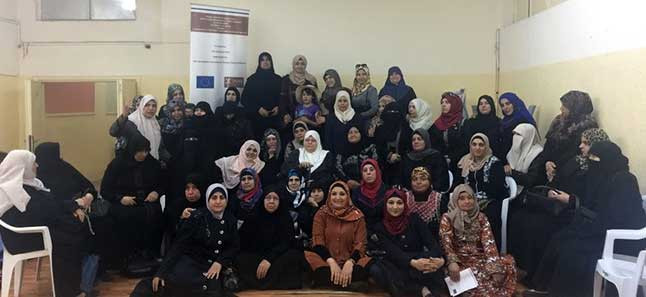"After the attack it has been the first time that I could sleep without sleeping pills. I have been able to find rest through the power of breath,” says a security personnel of G4S, a witness of the Brussels attack, who underwent a 15-hour Trauma-Relief Training at Belgium that was conducted by the International Association For Human Values (IAHV).
Amidst the frightening terror activities taking place worldwide, volunteers from the IAHV sprang into action to restore peace of mind and help them cope with the frightening situation.
IAHV, a sister organization of the Art of Living, has been waging a silent fight against the pain and fear created among victims of war and terror, helping them to restore their peace of mind. In Europe, IAHV has been conducting stress-relief training programs for victims of terror, including the individuals who witnessed the Brussels attack and for refugees from war-torn countries such as Syria and Afghanistan.
After attending the organization’s workshop at Zutphen, Netherlands, a Syrian refugee said, “I feel more relaxed and have found clarity of mind with this workshop.”
IAHV has relentlessly been working towards strengthening and empowering individuals through stress-relief programs for over two decades. The inspiring stories of change in victims in Europe post the programs has encouraged the organization to help war-affected children through a three-year project, ‘Healing, Resilience, and Preventing Extremism’.
The challenges the initiative addresses:
Syrian refugee children are facing severe psychological damage with problems such as anxiety, depression, sleeping problems, PTS, anger and aggression, making them susceptible to long-term damage. The adults surrounding these children are facing emotional turbulences of their own. Parents are saddened by their pasts and facing difficulty in creating a new future. Teachers are over-burdened with long working hours and surplus students. In addition, host countries like Jordan are facing scarcity of resources and unemployment, pulling the general public morale down.
With these challenges in mind, the project has been built to help emotionally perturbed children, and strengthen their caregivers - teachers, parents, and social workers - through stress-relief training programs. The project will reach an estimated number of over 16,000 children, including Syrian refugees, and the community at large, in the Middle-Eastern countries of Lebanon and Jordan.
The month-old project has started to brim with positive stories already.
A participant of the program shares, “It is as if a wave of positivity has entered my life. My days weren’t always happy, sometimes I smile, but most days, I just don’t. Now I am smiling all the time, especially after applying the techniques given to me by the trainers. I even participate in class now!”

Dr Katrien Hertog, director of IAHV, tells us more about the project’s journey.
When did IAHV first conceptualize the project?
We had conducted a few pilot training programs for war-affected children and youth. The participants would always find the techniques new, yet very efficient. They would find immediate benefits and would ask us if we could do this for more people affected in Lebanon. We found a huge need and receptiveness for our training programs and thus, we decided to initiate the Healing, Resilience, and Preventing Extremism project.
What makes IAHV’s programs effective?
We focus on all levels of human existence. Our methods have a profound effect beyond the cognitive levels, without needing psychotherapists and psychologists. Unlike the traditional psychosocial approach which treats each case differently, our approach is holistic and an effective group approach for psycho-social issues.
It has been a month since the project started. How has this month been?
Very good. We’ve started our work in Jordan and have conducted 40 Stress-Relief and Resilience workshops for over a thousand children. The response has been wonderful. For teachers and front-line workers, we have conducted eight workshops in stress management and professional/self-care. We also got a chance to help a near-about hundred Syrian widowed mothers.

What are your near-future goals?
In total 8,000 children, 250 professionals and 1,500 parents in Jordan will be reached within this project. In the next few months, the IAHV team will be conducting regular follow-up sessions to PC graduates which will prepare them to take the Training of Trainers (TOT), another bold step in the project which will ensure multiplication and sustainability across the most vulnerable schools and communities in Jordan.
Tell us about your team and its efforts for making this project a success.
Our team has been working with selfless commitment. Not one person on our team is working for salary as each and every person is doing this work because they believe in the purpose of it. Our team has been visiting different Embassies in Jordan and Lebanon to raise awareness about IAHV's innovative, effective and scalable peace-building approach and to explore cooperation and collaborations with ongoing programs and priority areas. The diplomats have expressed a lot of interest in our programs.
Thousands of Syrian children are being afflicted with the war’s trauma, making initiatives such as “Healing, Resilience, and Preventing Extremism” important. We invite corporates, institutions and individuals to partner with IAHV for contributions. Interested corporates and institutions can write to info@peaceunit-iahv.org. Individuals can donate on Global Giving, a crowdfunding platform.


